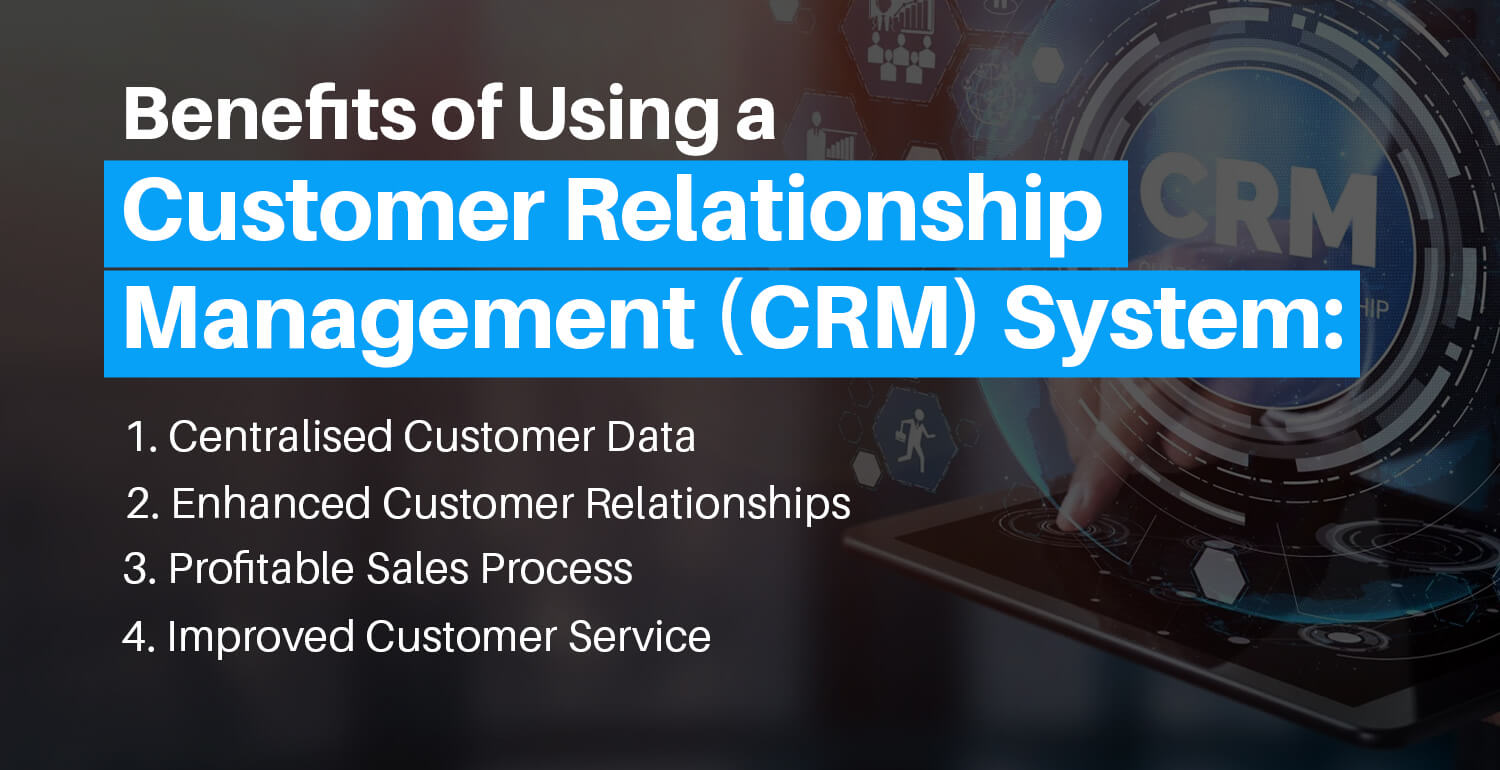Building and maintaining strong client relationships is essential for achieving success in the current highly competitive business market. Customer Relationship Management (CRM) systems are utilised in this context.
A client Relationship Management (CRM) system is a comprehensive solution that enables companies to effectively handle client contacts, optimise workflows, and foster corporate expansion.
This article will examine the numerous advantages of using a CRM system and its ability to transform your business operations.
 Centralised Customer Data
Centralised Customer Data
A primary benefit of using a CRM system is the capacity to gather client data in a centralised manner. A CRM organises all customer interactions, transactions, and preferences into a single, readily available database, reducing the need to search for information across many platforms.
This repository acts as a centralised source of precise data, providing an important understanding of consumer behaviour and allowing the execution of personalised interaction efforts.
Enhanced Customer Relationships
A client Relationship Management (CRM) system allows companies to enhance client connections through personalised communication and targeted marketing strategies.
By using comprehensive consumer profiles and past interactions, organisations can customise their messaging and offer to the specific requirements and preferences of each individual.
This personalised approach develops confidence, loyalty, and strong client connections.
Profitable Sales Process
CRM systems improve the sales process by automating routine processes, such as lead creation, follow-ups, and pipeline monitoring. By adopting automation for these operations, sales staff can direct their time and energy towards high-impact tasks, such as developing connections and closing transactions. This enhanced effectiveness leads to shorter sales cycles, increased conversion rates, and ultimately, more revenue generation.
Improved Customer Service
A CRM system allows companies to provide fast and customised customer care by providing agents access to substantial consumer data and interaction history. Provided with this data readily available, representatives may quickly react to client concerns, resolve problems, and offer customised solutions.
Using this active strategy for customer service not only improves satisfaction but also encourages favourable referrals and loyalty to the brand.
Data-Driven Decision making
CRM solutions offer companies essential information and data that guide strategic decision-making. Through analysis of consumer data, trends, and performance metrics, organisations may identify potential areas for expansion, enhance marketing efforts, and manage resources with greater efficiency.
By adopting a data-driven strategy, business choices are made using objective information instead of relying on intuition or speculation.
Better Cross-selling and Upselling
A CRM system allows businesses to find cross-selling and upselling opportunities through the analysis of consumer purchase history, preferences, and behaviour.
Businesses may maximise revenue while improving the long-term worth of customers by carefully suggesting complementary items or upgrades at the appropriate moments.
This smart sales approach not only generates immediate money but also improves client connections and promotes loyalty.
Building Team Collaboration
CRM solutions increase team collaboration and communication by providing a centralised platform for sharing information, monitoring progress, and coordinating activities.
By providing instant access to customer data and changes, teams may work together far better, coordinating their actions to provide an effortless and consistent customer experience.
This cooperative strategy promotes cooperation, creativity, and innovation inside the company.
Scalability and flexibility
CRM solutions have been designed to deal with the expansion and development of businesses over time. A CRM system can adapt to changing needs and requirements, whether it involves branching into new areas, adding products or services, or increasing the customer base.
By including customisable features and connections, organisations can personalise their CRM solution to align with their specific procedures and business objectives, guaranteeing long-term flexibility and adaptability.
Cost savings
Although there are initial costs related to setting up a CRM system, the long-term advantages frequently exceed the financial investment.
CRM solutions improve company effectiveness by automating manual operations, optimising procedures, and increasing productivity, hence reducing operating costs and administrative expenditures.
CRM systems help with long-term revenue development and profitability by maximising sales possibilities, improving retention of customers, and minimising loss.
Creating a Distinctive Edge
The client experience plays an essential part in identifying oneself in the current highly competitive industry. By using a CRM system to provide customised, active, and streamlined service, businesses can differentiate themselves from competitors and develop a loyal customer following.
By having the capacity to predict consumer requirements, provide outstanding experiences, and enhance customer happiness, organisations get a competitive advantage that sets up them for sustained success in the long run.
Overall, the benefits of utilising a CRM system are numerous, including enhanced customer interactions, increased operational effectiveness, data-informed choices, and an edge over the competition.
By investing resources towards implementing a CRM system, organisations may optimise their operations, stimulate expansion, and provide outstanding customer experiences that differentiate them in the current competitive market. By adopting an appropriate CRM solution, businesses can achieve endless possibilities for transformation.
Q1: Can a Customer Relationship Management (CRM) system provide benefits to small companies?
A1: In fact, Customer Relationship Management (CRM) systems hold significant value for companies of varying scales, including small businesses as well.
Their services help small businesses optimise their operations, improving client interactions, and encouraging expansion through the offering of centralised data management, simplified workflows, and customised interaction.
Q2: How much is the average time for implementing a CRM system?
A2: The time frame of CRM setup is dependent upon several aspects, such as the complexity of the system, the scale of the company, and how much customisation is needed. While certain tasks can be completed within a few weeks, others might require many months.
Q3: Is education required for using a CRM system?
A3: Yes, skill in using a CRM system usually requires training. CRM providers typically provide training programmes and tools that help users in acquiring proficiency in system navigation, data input, report generation, and use of advanced features. Training is essential for users to fully maximise the advantages of the CRM system.



